The Paris Agreement on climate change appears imminently on course to come into force early—before the end of this year. For those prone to grumbling about the slow pace of the United Nations, this is exciting and significant news. On Wednesday on the sidelines of the annual General Assembly meeting in New York, U.N. Secretary-General Ban Ki-moon will host a ceremony for around two dozen countries to formally join the agreement.
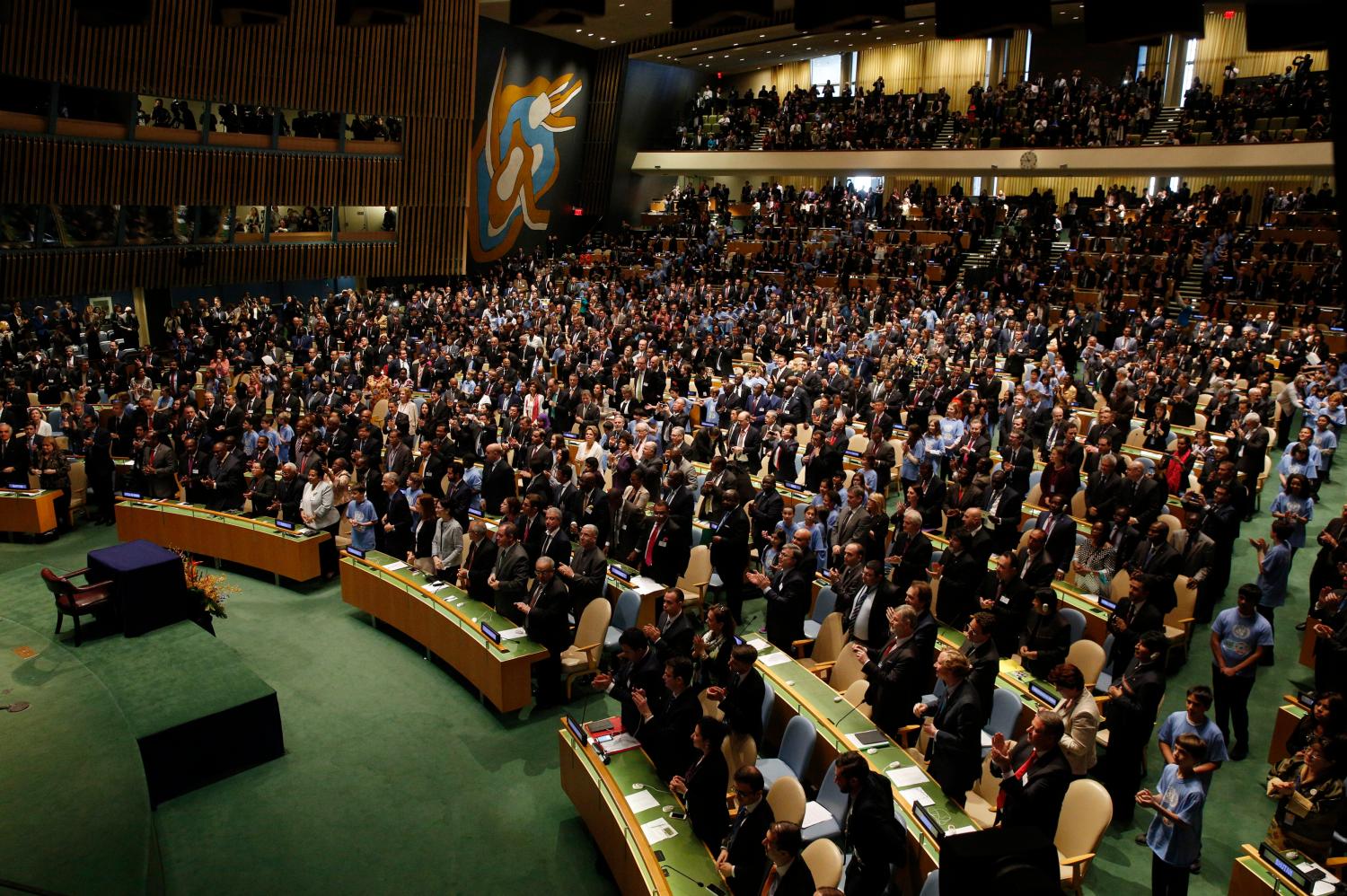
In this time of polarized dysfunction, international cooperation on climate change is a bright spot in an otherwise tumultuous period. Why is this surprisingly collaborative effort happening now?
In December 2015, 195 countries celebrated the adoption of the Paris Agreement. To paraphrase the environmental writer and activist George Monbiot, the agreement is much better than what it could have been but far worse than it should have been.
The Paris Agreement includes binding obligations for all countries to regularly prepare national climate plans and strengthens the goal to limit the global temperature increase to well below 2 degrees Celsius and to pursue efforts to limit it to 1.5 degrees Celsius. It sends a strong message to policymakers and investors that the phasing out of fossil fuels by 2050 is required and that all investments must be consistent with reaching net zero emissions this century. It sets up a structure by which countries provide pledges every five years and monitor each other’s actions in living up to their promises.
There is no time to lose. As scientists remind us with increasing frequency and urgency of the worsening impacts of climate change around us we need to act fast to preserve a livable planet for our children and grandchildren.
The agreement will come into effect 30 days after 55 countries representing 55 percent of global greenhouse gas emissions ratify it. A huge boost came when the United States and China together joined the agreement earlier this month representing roughly 40 percent of global emissions.
There are various reasons behind the rush to bring the agreement into effect this year. The U.S. presidential election is one of them. The U.S. has perennially been a problem for advancing a global agreement on climate, but the Obama administration has become an exception to that rule and is pushing for the agreement to come into force as quickly as possible.
Republican presidential candidate Donald Trump has called climate change a “hoax” and threatened to “cancel” the Paris Agreement. In the event that he manages to secure the Oval Office and finds the agreement already in effect, he would find it difficult to withdraw for four years. The GOP candidate has said he would scrap the Environmental Protection Agency, which as the principal vehicle for implementing many of the U.S. commitments on climate change under the agreement, would in effect nullify the U.S.’s participation.
In this time of polarized dysfunction, international cooperation on climate change is a bright spot in an otherwise tumultuous period
The political energy and interest from governments, the private sector, cities, and civil society around the Paris conference last year continues, providing another reason why the ratification process is moving quickly. In the build up to the G-20 meeting in China this month, a group of 130 institutions that control $13 trillion of investments called on countries to ratify the agreement this year; a move which could provide better policy certainty and would attract investment in low-carbon technology.
From Paris to Marrakesh
The early entry into force of the Paris Agreement could create some difficulties for the U.N. process. If the threshold for the agreement’s coming into effect is crossed before October 7, the annual U.N. climate talks (the 22nd Conference of the Parties of the UNFCCC, or “COP22” for short) in Marrakesh, Morocco in November will have to be rearranged to be the first meeting of the Paris Agreement. Some negotiators would be happier without this additional complication and would prefer the agreement to come into effect in December after COP22. The procedural headaches and distraction could gobble up a considerable chunk of the available two weeks of the talks and distract from various pressing issues that the negotiations need to make progress on.
Various contentious issues agreed in Paris were not fleshed out and were effectively “kicked down the road” to Marrakesh and beyond. Countries must therefore use this round of negotiations to advance the various rules, modalities, and guidelines required to operationalize the agreement and support its successful implementation. A key area will be defining the roadmap for scaling up levels of finance, and how it will be tracked and reported by donors and recipients, in order to reach the promised $100 billion dollars to be provided to support developing countries per year from 2020.
But that’s for November. For now, it’s important to observe that the international community is coming together to address a major global crisis. No longer should the U.S. fear going alone, without countries like China making commitments. Rather, the U.S. should be concerned about being left behind, as China surges ahead in bringing online new renewable energy capacity and developing the technologies of the new low-carbon economy.
The agreement’s imminent entry into force represents not only good news for multilateralism but also an opportunity to build a more prosperous, resilient, and low-emission economy. Related policy measures such as boosting energy efficiency can create jobs, lower utility bills for working families, and can potentially eliminate the need to bring online new fossil fuel plants. The recent progress on electric vehicles represents a very exciting area of innovation for car companies and consumers, which can lower emissions and help improve air quality in cities and prevent the premature deaths of millions of people worldwide every year. And of course the cost of renewable energy sources like wind and solar are plunging to levels at or even below coal and natural gas costs.
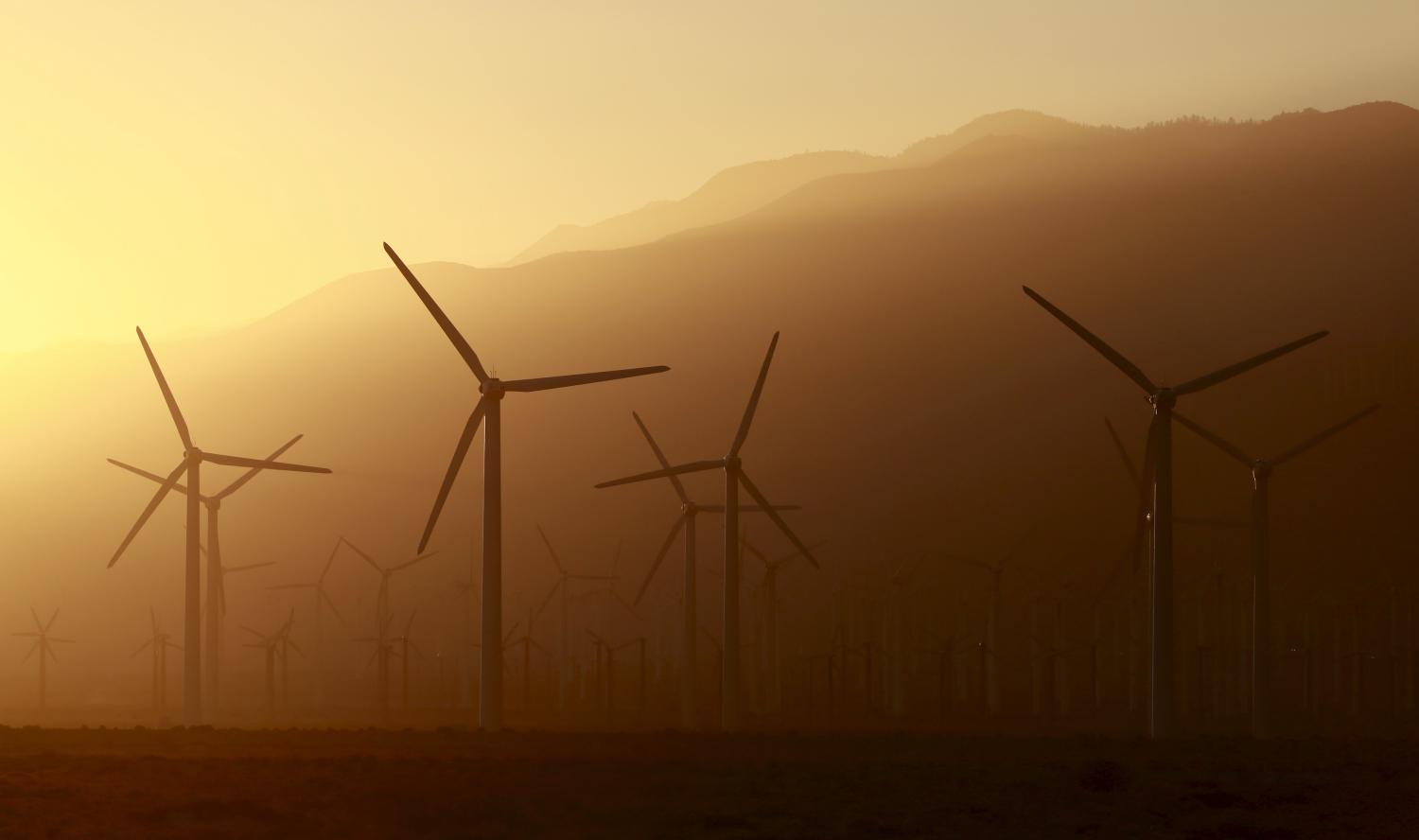
Achieving the goals of the Paris Agreement can set the world climate onto a more safe and sustainable pathway. Let’s celebrate its early entry into effect force and start building that better future.

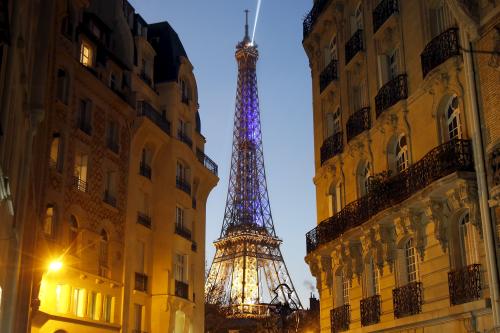
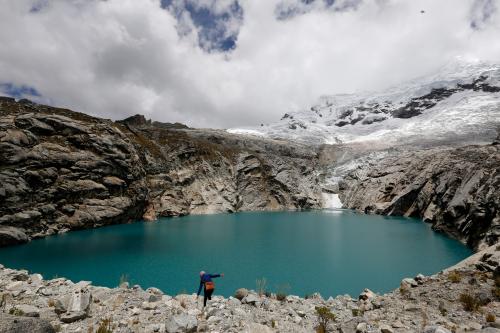
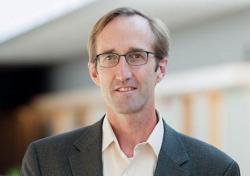



Commentary
The United Nations to bring the Paris climate agreement into force early
September 20, 2016